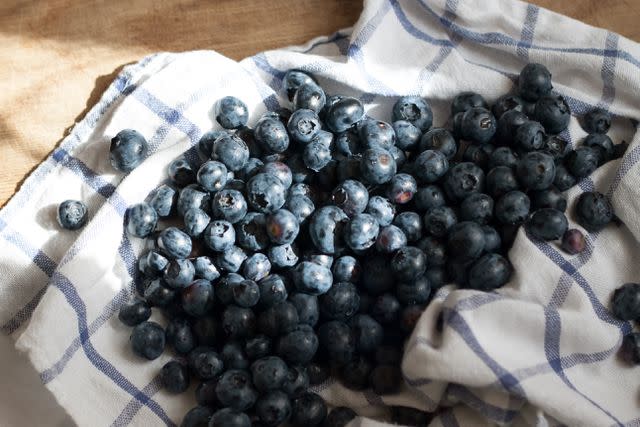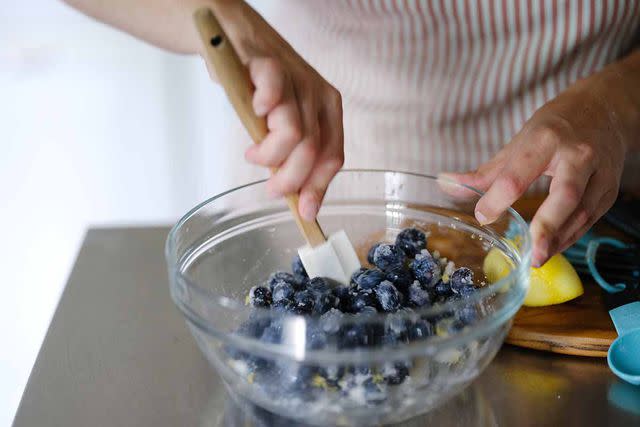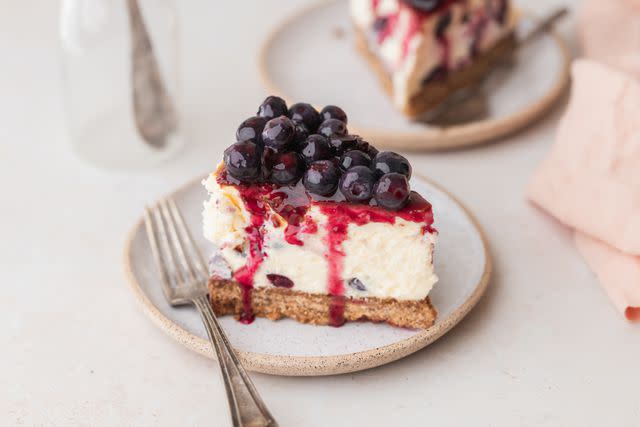The Only Way To Prevent Blueberries From Rotting
A food preservation expert and a blueberry expert weigh in.
I admit that after grocery shopping or hitting up the U-pick berry farm, I’m often too tired to do anything besides get my fresh blueberries into the fridge. Over the years I’ve read all the tips for washing and storing blueberries— soak them in a water-vinegar bath, buy a special fruit wash, line glass containers with paper towels—but none of them stuck with me.

Simply Recipes / Getty Images
Lucky for me, after speaking with two experts at the University of Maine, I can officially confirm my do-nothing technique is actually best for storing blueberries.

Why You Should Not Wash Your Blueberries Before Storing
Lily Calderwood, Ph.D. is a wild blueberry specialist and Assistant Professor of Horticulture at The University of Maine. She walked me through the growing, harvesting, and cleaning process for blueberries. Unlike other berries, blueberries have a natural protective coating that appears as an opaque gray-white layer on the outside of the berries.
“[Blueberries] are covered in a waxy coating called ‘bloom’,” Dr. Calderwood told me via email, “fresh pack and fresh frozen growers preserve [this coating] because they are not washed.” Thanks to their protective coating, blueberries actually stay fresher longer if they aren’t rinsed or washed before storing, but they should be washed just before eating.

Simply Recipes / Cambrea Gordon
The Best Way To Store Blueberries
I asked Calderwood’s colleague Kate McCarty, a food preservation expert at The University of Maine Cooperative Extension, about blueberry storage too—specifically her recommendations for keeping grocery store blueberries fresh for longer.
“Food washes are fine from a food safety standpoint but they may impact taste. Since blueberries do have that protective coating, the best thing you can do is inspect the clamshell for any mushed berries, remove them, and line the container with a little paper towel square to wick away moisture,” McCarty advised. “It is better to wash blueberries right before you plan to eat or cook them.”
As for freezing a haul of blueberries, you might bring home from a U-pick or farmers market in late summer, McCarty had some brilliant advice. “Sometimes I just stick the whole flat in the freezer when they are in abundance in August,” McCarty laughed, “but I don’t actually recommend that! Instead, measure the berries into portions you’ll use, like one cup for your favorite loaf cake or one pound for your favorite pie."
The bloom coating of blueberries makes them almost non-stick, so McCarty only recommends freezing blueberries on a parchment paper-lined baking tray if you are really worried about sticking. “Most of the time a few cups in a zip top bag laid flat to freeze results in zero clumping.”
Of course, you can also preserve blueberries by making preserves like jams or jellies or canning blueberry pie filling, but I would much rather not heat the whole kitchen with a canning water bath when I can do nothing instead.
Read the original article on Simply Recipes.

